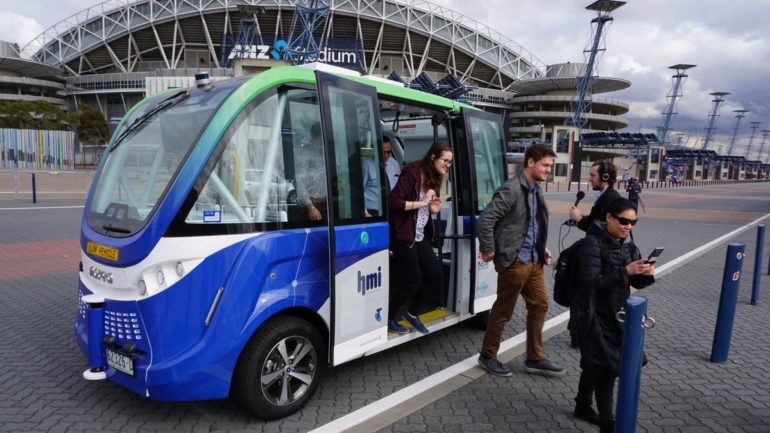Transport for NSW has announced it will be taking the next steps in its autonomous vehicle trial by working with driverless technology firm Motional to investigate and develop a plan for using driverless rideshare services.
Transport for NSW customer strategy and technology deputy secretary Joost de Kock said the plan would lay the foundation for future robotaxi services.
“We’re excited to be working with Motional to start laying the foundation for a driverless future in NSW. Today’s studies may very well shape how our communities move around in years to come,” he said.
Speaking at the virtual Gartner IT Symposium/Xpo 2021 on Tuesday, De Cock outlined that adopting connect autonomous vehicles would “improve the safety and efficiency of our road network and ultimately save lives”.
He pointed out that to date, the state government has run autonomous shuttle bus services in Sydney Olympic Park to test integration with traffic lights and digital bus stops for turn-up-and-go service.
De Cock also said that later this year, BusBot trials with Busways, Easy Mile, and Coffs Harbour City council will begin at Coffs Harbour Botanical Gardens. It was initially slated for earlier this year but due to COVID-19 restrictions the launch was delayed.
De Cock touted Coffs Harbour Botanic Garden customers would be the “first in the world to experience an automated public shuttle bus passenger service without a driver or supervisor on board”.
“We are really working hard to get ready for connected autonomous vehicles through further and more advanced trials. For example, autonomous bus and ride-shared services and how they could integrate into mobility-as-a-service system,” De Cock said.
The adoption of connected autonomous vehicles on state roads is one of the priority areas that has been set out in the NSW government’s future transport technology roadmap 2021-24 that was released earlier this year.
Other priority areas include equipping regional transport network with smart infrastructure to provide real-time information to customers about bus services through tools such as digital timetable, and using Google Assistant and Amazon Alexa. This is being delivered under the connected bus program to 16 regional cities, half of which have already been delivered, De Cock said.
De Kock said improving industry supply chain through enhanced freight productivity is also another area the state government is looking into as part of the roadmap.
“Our freight branch has begun working with industry on a proposed freight community system. This is a system that will enable industry across NSW freight supply chain to have more transparency, and to rapidly and securely exchange information business-to-business to drive efficiencies,” he said.
“We’re also currently working on an automated access assessment portal for heavy vehicles. This will provide expanded and more timely access for trucks on NSW state and local roads. It’ll provide network information to truck drivers via an interactive map with turn-by-turn navigation using data and technology to also allow road managers, like Transport NSW, to make smarter and faster network management decisions.”


